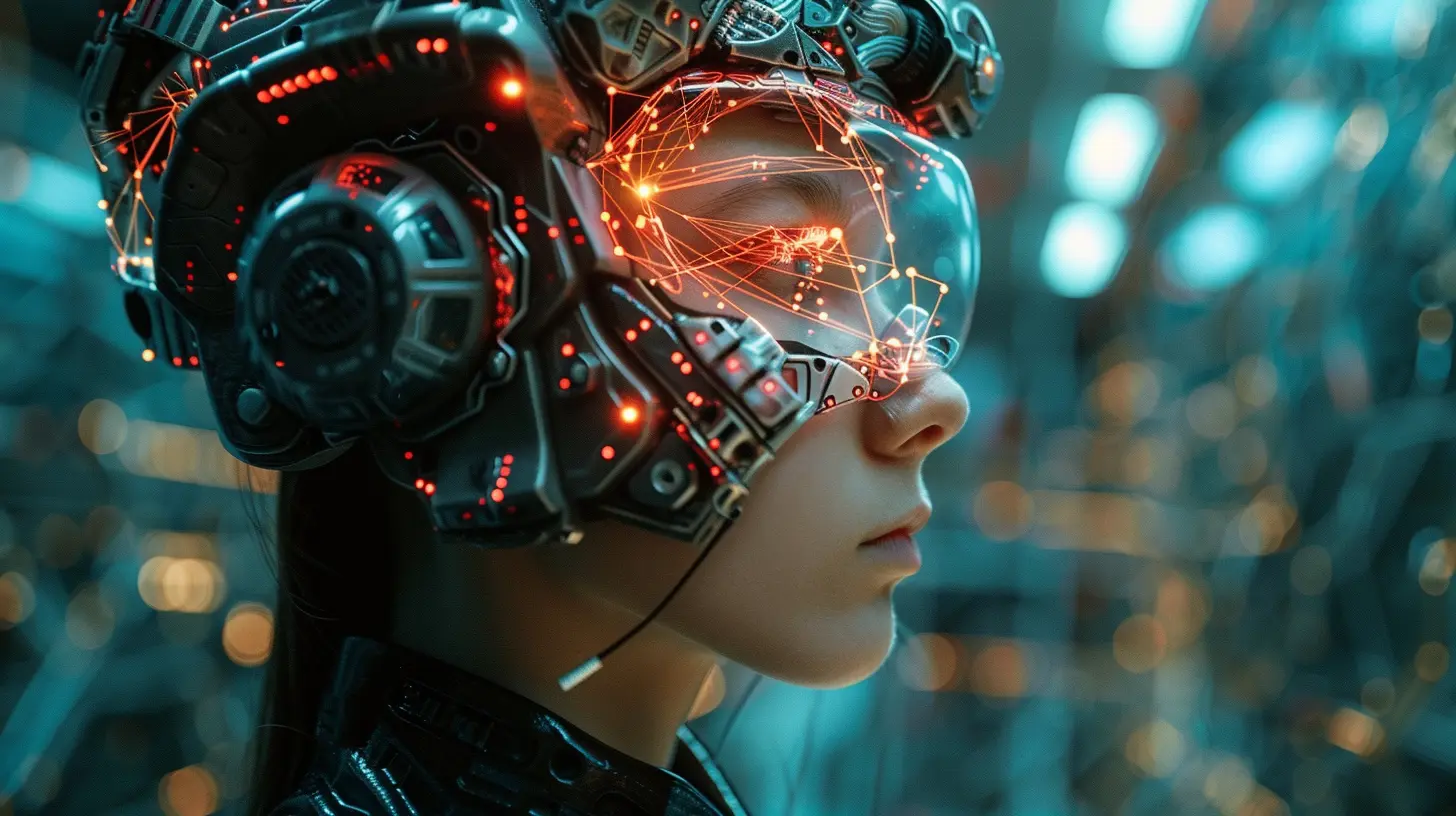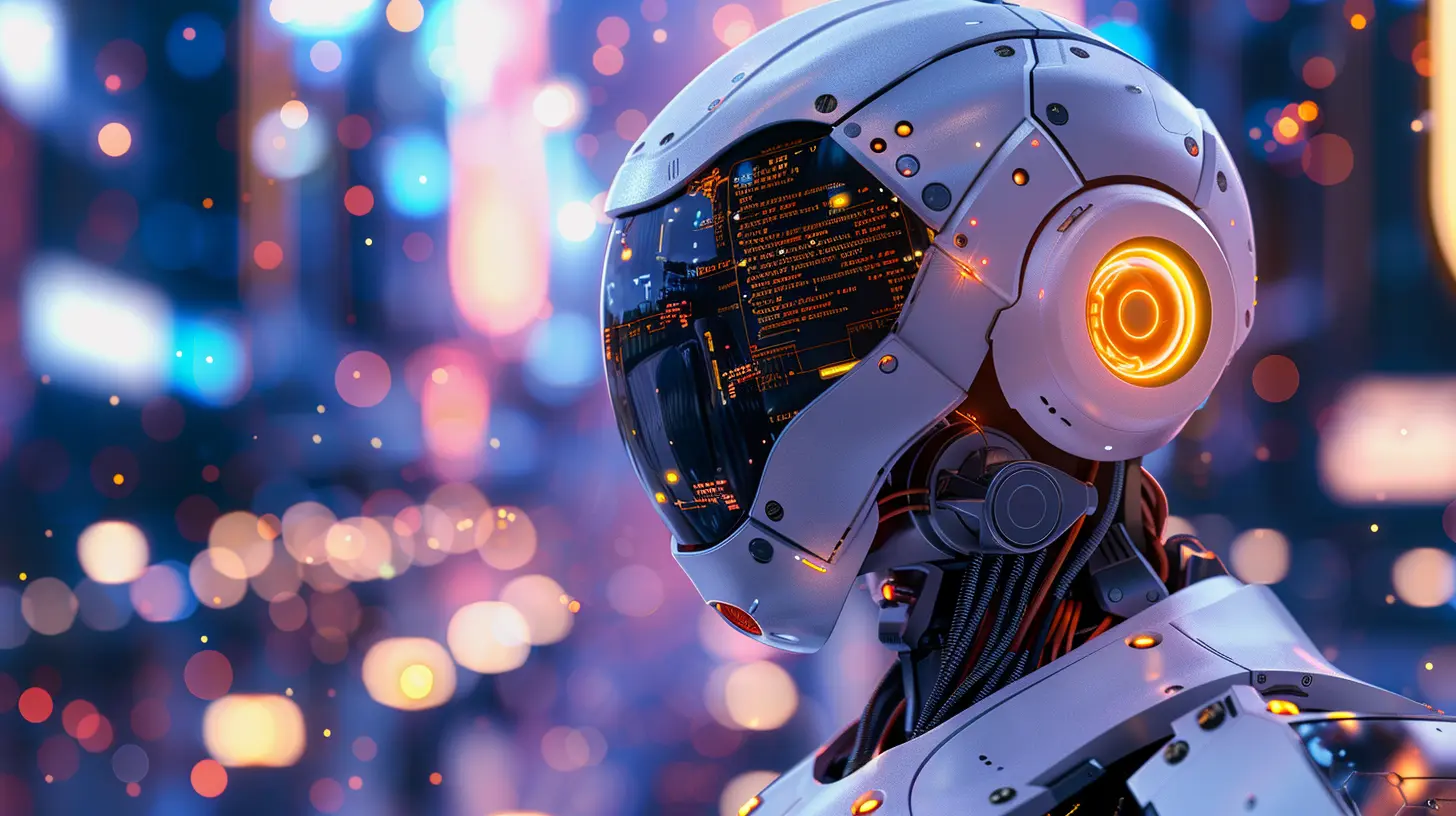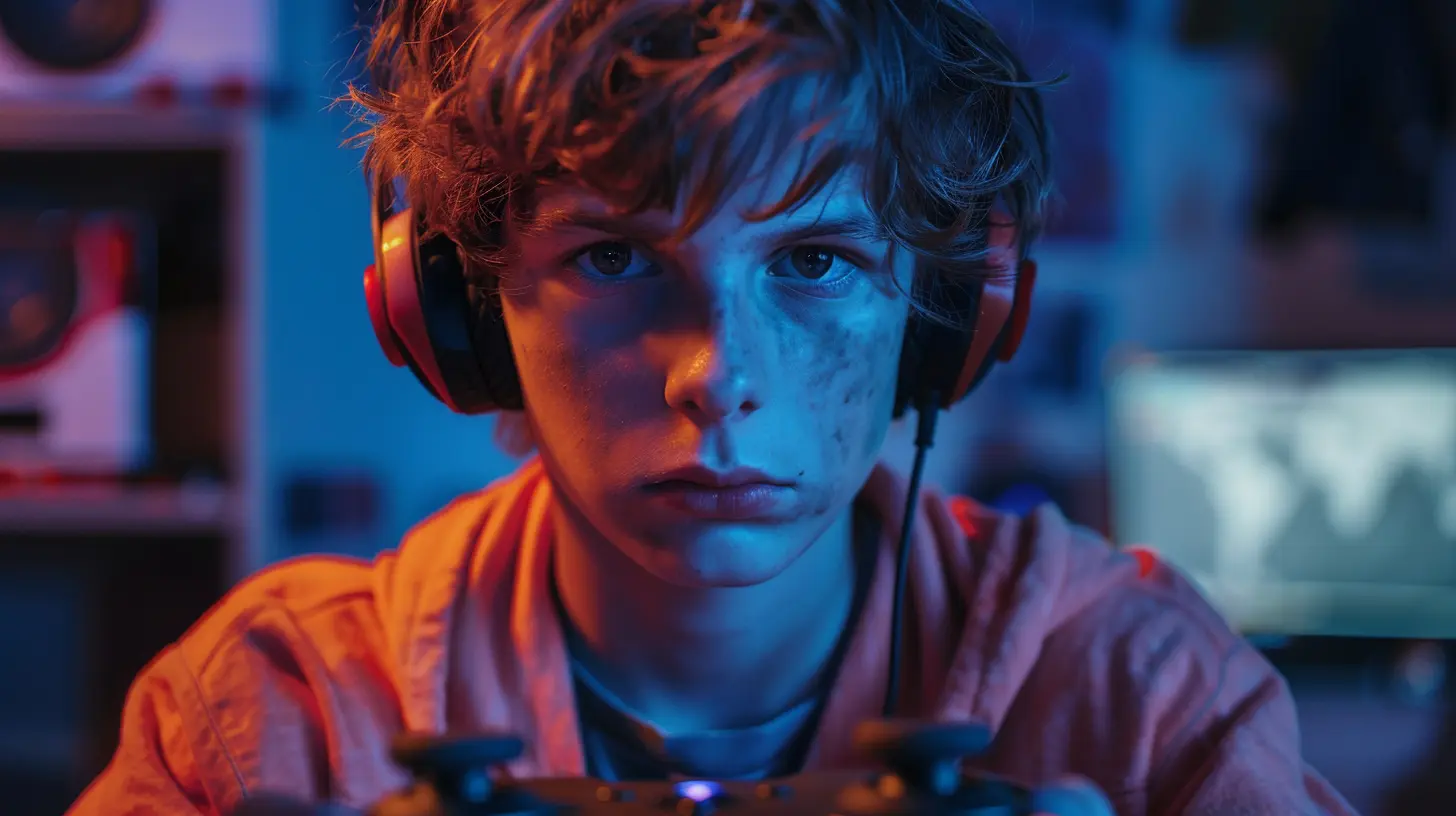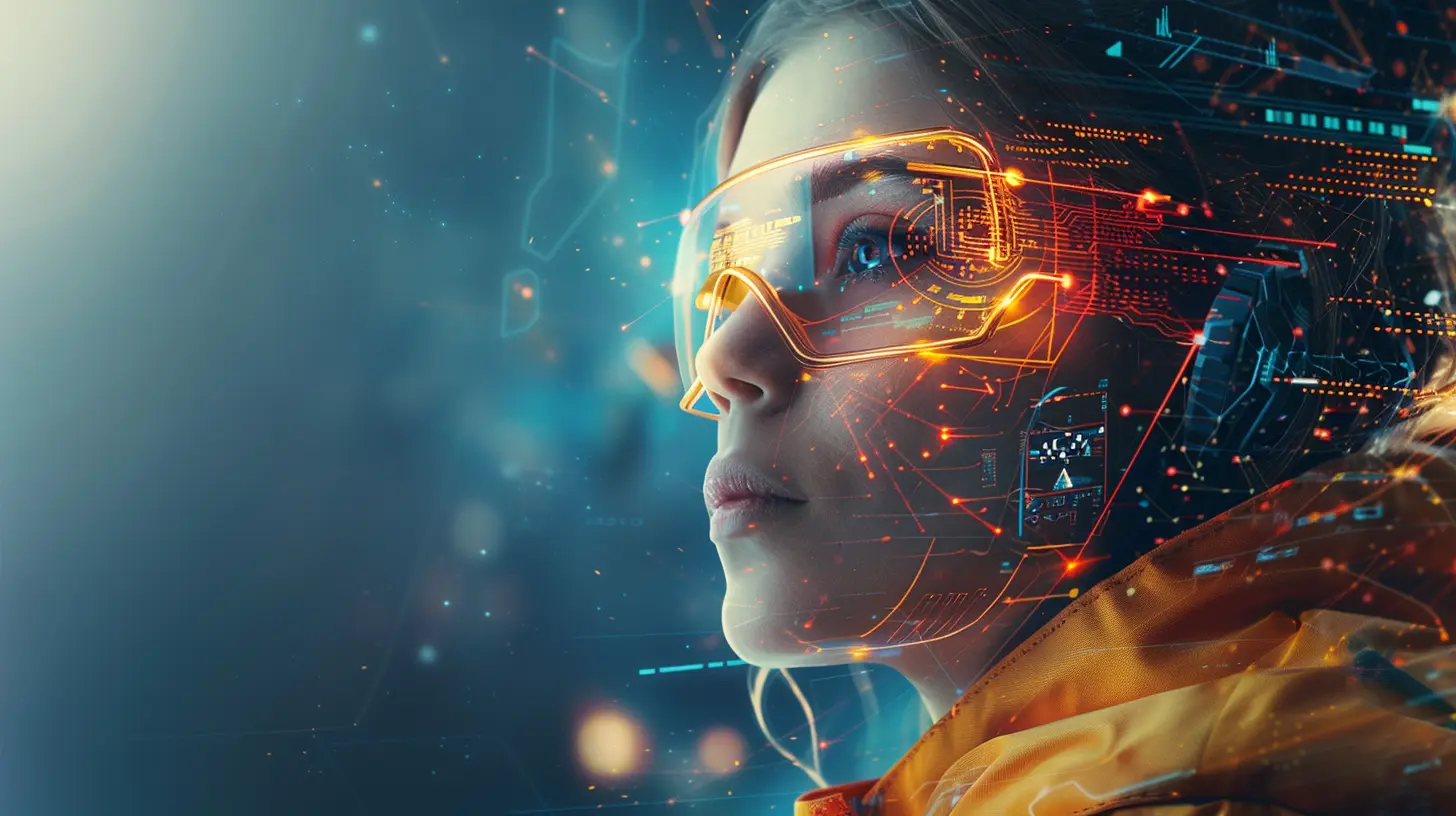The Role of Artificial Intelligence in Modern Console Games
15 July 2025
When was the last time you were playing a console game, battled an enemy, and thought, "Wow, this AI is insane!"? Chances are, it wasn’t that long ago. Artificial Intelligence (AI) has become a cornerstone in modern console gaming, shaping how players interact with the virtual world. Gone are the days when enemies blindly walked into walls or NPCs (non-playable characters) stood lifelessly like cardboard cutouts.
Today, AI in gaming isn’t just a "nice-to-have" – it’s essential. From creating smarter opponents to delivering more authentic worlds and hyper-personalized player experiences, AI has taken gaming to the next level. Let’s dig deeper into how this cutting-edge technology has revolutionized modern console games. 
AI: The Hidden Star of Modern Gaming
When we talk about console games, the spotlight often shines on jaw-dropping graphics, immersive storylines, and multiplayer features. But guess what? AI is the unsung hero working tirelessly behind the scenes to bring all these elements together.Think of AI as the "brain" of a game. While game developers create the skeleton—designing worlds, models, and mechanics—AI breathes life into everything. It decides how enemies attack, how an NPC reacts when you throw a grenade near them, and even how crowds move in open-world games like Grand Theft Auto V or Red Dead Redemption 2.
Without AI, even the most graphically stunning games would feel lifeless and dull. It’s like having a beautiful stage set up but no actors to bring the story to life. 
Smarter Opponents, Bigger Challenges
Let’s start with one of the most obvious roles AI plays in games—controlling NPC enemies. Back in the day, enemies followed predictable patterns. Think of old-school Mario games where the Goombas march in a straight line—easy to predict, which made them easy to defeat.Fast forward to today, and AI-driven opponents are highly dynamic. They anticipate your moves, adapt on the fly, and even coordinate ambushes. Have you ever played a game like The Last of Us Part II? The enemies in that game don’t just blindly rush toward you—they actively hunt you down. If you’re hiding, they search intelligently, checking dark corners or tall grass. Get spotted once, and their tactics shift—one might provide cover fire while another flanks you from the side.
This isn’t just random gameplay design; it’s the result of years of AI innovation. These enemies are programmed using advanced algorithms like pathfinding (to plot how they move) and decision trees (to decide how they react based on what you do). It’s almost like they’ve got a little brain of their own! 
AI in Storytelling and World Building
AI isn’t just about creating smarter opponents. It also plays a massive role in crafting immersive stories and expansive open worlds.Take a game like The Witcher 3: Wild Hunt. Its richly detailed world feels alive, right? That's largely thanks to AI. NPCs in towns don’t stand idly—they go about their daily routines, farming, chatting, and sometimes even reacting to the weather. If it starts raining, you might see someone run for cover or pull out an umbrella.
AI-controlled NPCs also add depth to storytelling. For example, in games like Mass Effect or Cyberpunk 2077, dialogue trees are powered by AI systems. Your choices can trigger different responses, which shape the story as you play. It feels like the world is reacting to you rather than following a linear script.
And let’s not forget about virtual companions! Think about Ellie from The Last of Us or Atreus from God of War—these characters aren’t just tagalongs. They feel like real people with their own personalities, assisting you in combat, cracking jokes, or reacting emotionally to the story. That’s pure AI magic. 
AI-Powered Personalization: The Gamer's Dream
Here’s where things get really cool. AI doesn’t just make games smarter or immersive—it makes them personal.Ever noticed how modern console games seem to "learn" about your playstyle? Adaptive difficulty systems, driven by AI, tweak the game’s challenges based on how you play. If you’re breezing through levels, the AI might ramp up enemy aggression. Struggling with a boss fight? The AI might subtly lower the difficulty to give you a fighting chance. It’s like having a coach who doesn’t yell, "Git gud!" but instead adjusts the game to suit you.
Even in multiplayer games like Call of Duty: Warzone or Fortnite, AI helps match players of similar skill levels, ensuring fair competition. It analyzes mountains of data—your accuracy, reaction speed, or even how often you rage quit—and pairs you with opponents of equal skill.
Plus, some games are experimenting with AI-generated content. For instance, procedural generation in games like No Man’s Sky uses AI to create billions of unique planets and ecosystems. Basically, no two players will see the same thing—how wild is that?
Where AI Gets a Bit Creepy
Okay, so AI is awesome, but let’s address the elephant in the room—it can also be a little… unsettling.In some games, AI-powered NPCs are getting eerily lifelike. Real-time voice synthesis and facial animation technology (thanks to AI) make it feel like you’re talking to a real human instead of a scripted character. For example, in Cyberpunk 2077, the facial expressions and lip-syncing are so accurate that it’s easy to forget you’re watching a digital character.
But here’s where the line blurs—how much is too much? We’re already seeing debates about whether AI could replace voice actors or even automate game development. It’s a fascinating discussion, but it leaves a lot of ethical questions unanswered.
What’s Next for AI in Console Games?
So, what does the future hold for AI in gaming? Honestly, the possibilities are endless. We’re already seeing AI tools being used to create games faster, making it possible for smaller indie studios to compete with AAA giants.AI could also take storytelling to new heights, delivering more dynamic narratives where no two players experience the same story. Imagine a Skyrim-style game where the world itself evolves based on your in-game decisions—not just scripted storylines or hardcoded quests.
Plus, with advancements in machine learning, AI could understand players better than ever. Games might adapt to your mood, preferences, or even physical reactions (think VR games that adjust based on your heart rate). Creepy? Sure. Cool? Absolutely.
And let’s not forget about AI-controlled companions! The future could bring sidekicks who genuinely feel like friends, remembering past adventures, cracking inside jokes, or even offering genuinely helpful advice.
Wrapping It Up
Artificial Intelligence has come a long way in modern console games, turning what was once a niche tech feature into a game-changer. From smarter enemies to lifelike NPCs, personalized experiences, and emergent storytelling, AI is making games more engaging, immersive, and downright fun.Sure, there are some challenges ahead—ethical concerns, potential over-reliance on AI, and that nagging worry of it being too smart. But at the end of the day, AI is here to make gaming better, and honestly, we gamers are here for it.
So, the next time you’re deep into your favorite console game, take a moment to appreciate the silent workhorse behind it all. AI isn’t just part of the game; it’s changing the game.
all images in this post were generated using AI tools
Category:
Console GamesAuthor:

Pascal Jennings
Discussion
rate this article
2 comments
Jamie Montgomery
Fascinating topic! How is AI changing player experiences in console gaming today?
February 4, 2026 at 5:40 AM
Zyana McCoy
Great article! It’s fascinating to see how AI enhances gameplay dynamics and storytelling in modern console games. I'm particularly interested in how these advancements will shape future gaming experiences. Keep up the good work!
July 24, 2025 at 4:56 AM

Pascal Jennings
Thank you for your kind words! I'm glad you found the article interesting, and I share your excitement about the future of AI in gaming!


